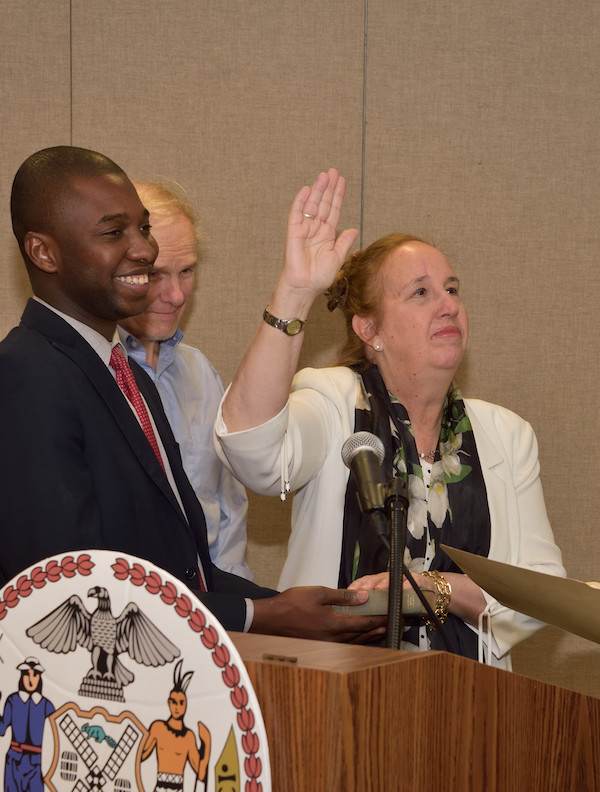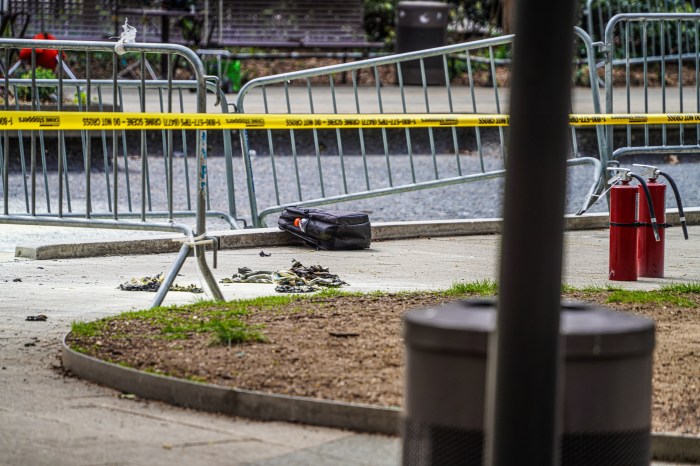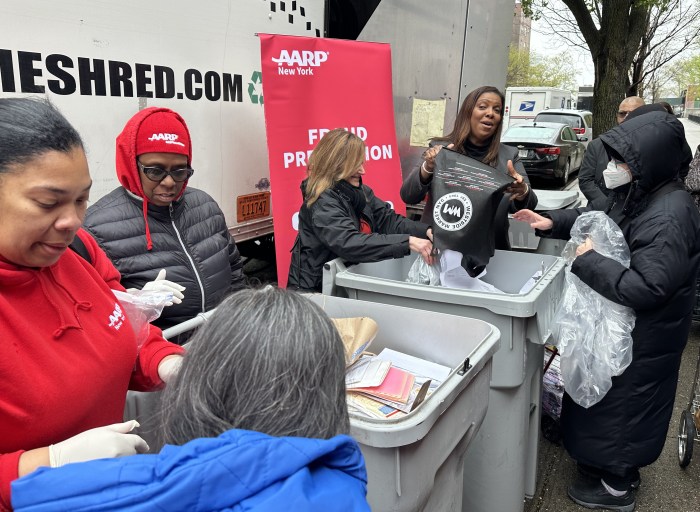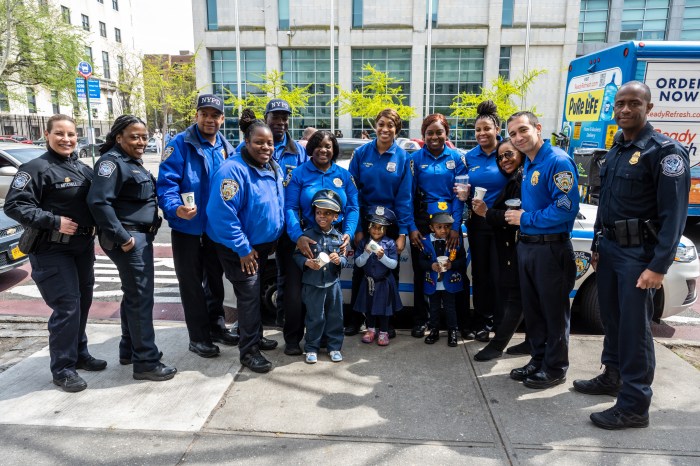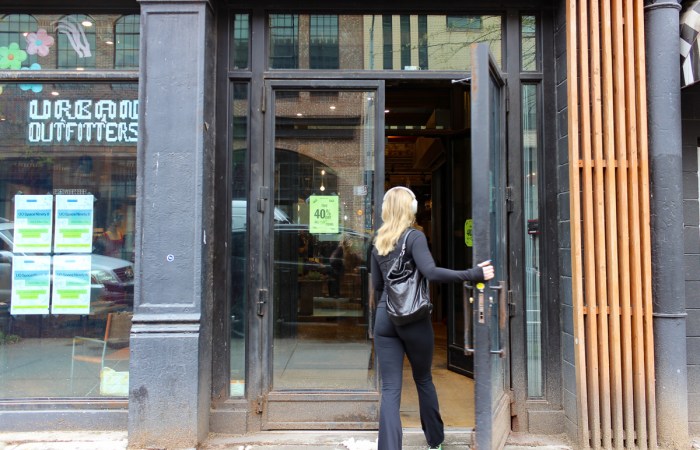BY LESLEY SUSSMAN | More than 100 people turned out for a forum on improving community-police relations on the Lower East Side and in the East Village on Wed., May 23.
The event, held at the Manny Cantor Center, at 175 East Broadway, brought together local community members, law enforcement, clergy and nonprofit leaders to discuss problems and try to generate solutions.
The-two-and-a-half-hour forum was co-hosted by Manhattan Borough President Gale Brewer and civil-rights attorney Norman Siegel. It was the third Manhattan-wide forum sponsored by the Borough President’s Office on the issue of police-community relations in the past few months, and was described by Brewer as “the largest and most diverse of them all.”
“I’m very pleased,” Brewer said after the meeting. “There were lots of discussions at the various tables and it all dovetails with what the police commissioner wants to do to get community residents and police together to dialogue.
“Forums like this give police a chance to meet with local merchants, community leaders and residents, and give people a chance to get to know the police better,” she added. “We’ll have a full report on what we came up with at all three forums in the fall.”
Siegel, former executive director of the New York City chapter of the American Civil Liberties Union, told the audience that what he hoped to get from the meeting was “specific recommendations on how to improve police and community relations.”
Among the questions he hoped would be addressed were: “Should the grand jury process remain a secret? Is the Police Department too white? Should there be a residency requirement for police who work in the city? And should there be more beat patrols?”
Also addressing the audience was Public Advocate Letitia James.
“It’s no secret that police and community relations are broken and that we need to restore them,” she said.
James added that although the Police Department has greatly reduced crime in the city and turned once-undesirable sections of the Lower East Side and East Village into “some of the hottest neighborhoods, there is still an atmosphere of distrust among some residents and police.”
She acknowledged that the Police Department has come a long way in its efforts to reach out to the community, but emphasized that more must be done, such as forums like this one, “until New Yorkers feel that the scales of justice are working for them.”
Speaking for the police, Assistant Chief William Morris, commanding officer of Patrol Borough Manhattan South, said the department’s commitment to improving community relations “has never been stronger.”
He said that this forum was an example of that.
“Despite all our manpower demands, we have an experienced police officer and a new officer assigned to the neighborhood at each table here tonight,” he said. “I think this is a big step forward in police and community relations.”
Another speaker, Rabbi Joanna Samuels, executive director of the Educational Alliance Manny Cantor Center, said she was encouraged by the turnout.
“I can’t think of a greater need than more dialogue and honest conversation between police and community residents,” she said. “I’m especially delighted that there are so many young people here tonight.”
When the speakers concluded their remarks, local residents and police from the Fifth, Seventh and Ninth Precincts, as well as from Manhattan South, began to address such issues as how to improve beat patrols, changes in the Special Narcotics Prosecutor’s Office, improvements in the bail process and better crisis-intervention training for officers.
Dozens of different ideas and suggestions were offered during this session at each table, including one from Manhattan South Police Officer Ken Stiell, who said he thought it would be a good idea for beat cops to adopt a more officer friendly attitude and even “hand out their business cards” if approached by a resident in a nonemergency situation.
Local resident Anthony Pappas said he would like to see each precinct have a “help desk” that local residents could call or go to at the stationhouse to informally discuss matters of concern, a suggestion that was strongly supported by others at his table.
At another table, Manhattan South Officer Lauren O’Rourke complained that one-sided news coverage of police is also a problem.
“Every officer gets painted by the same brush,” she said. “When there’s an incident, they don’t get the full story. The media often gives us a negative image and we need to change that picture.”



